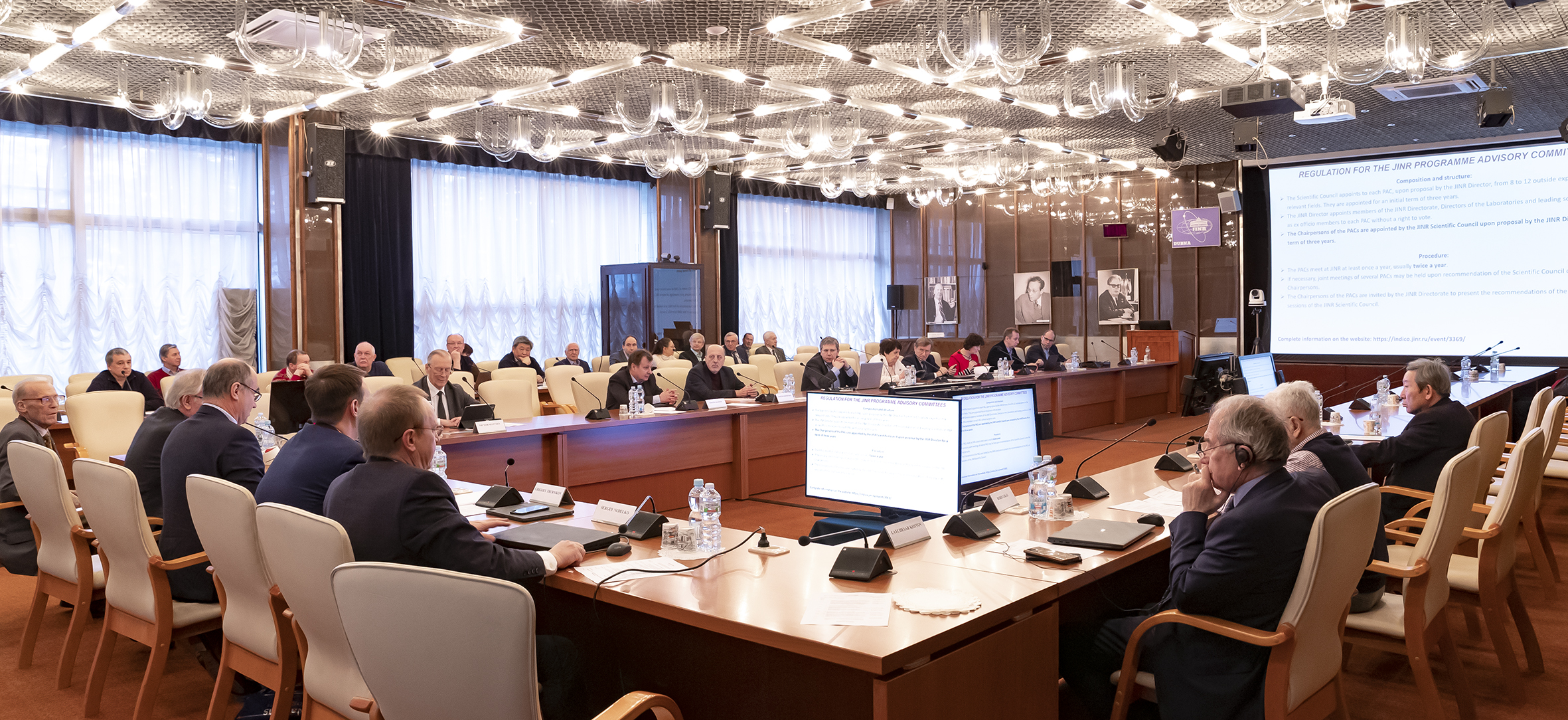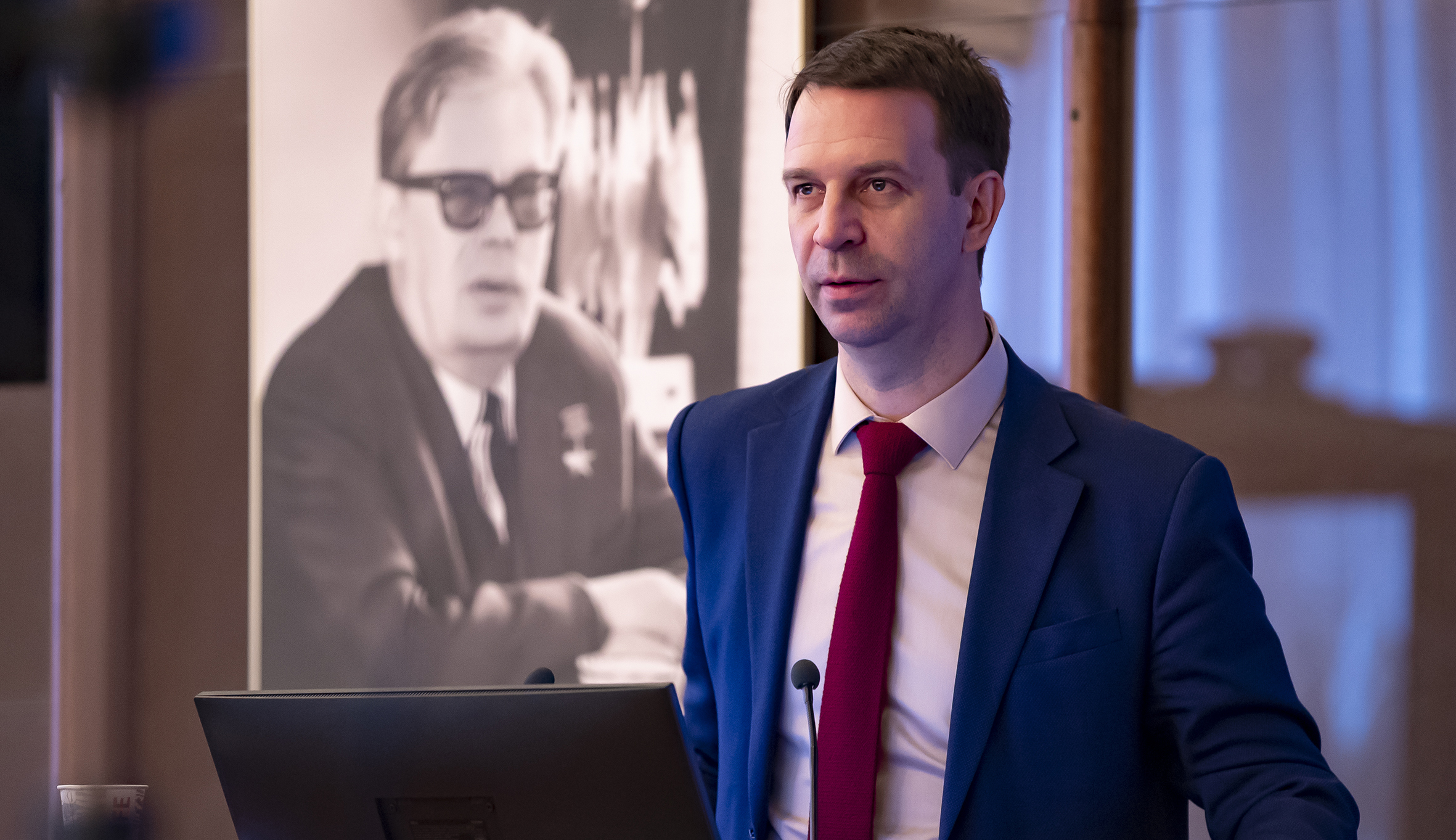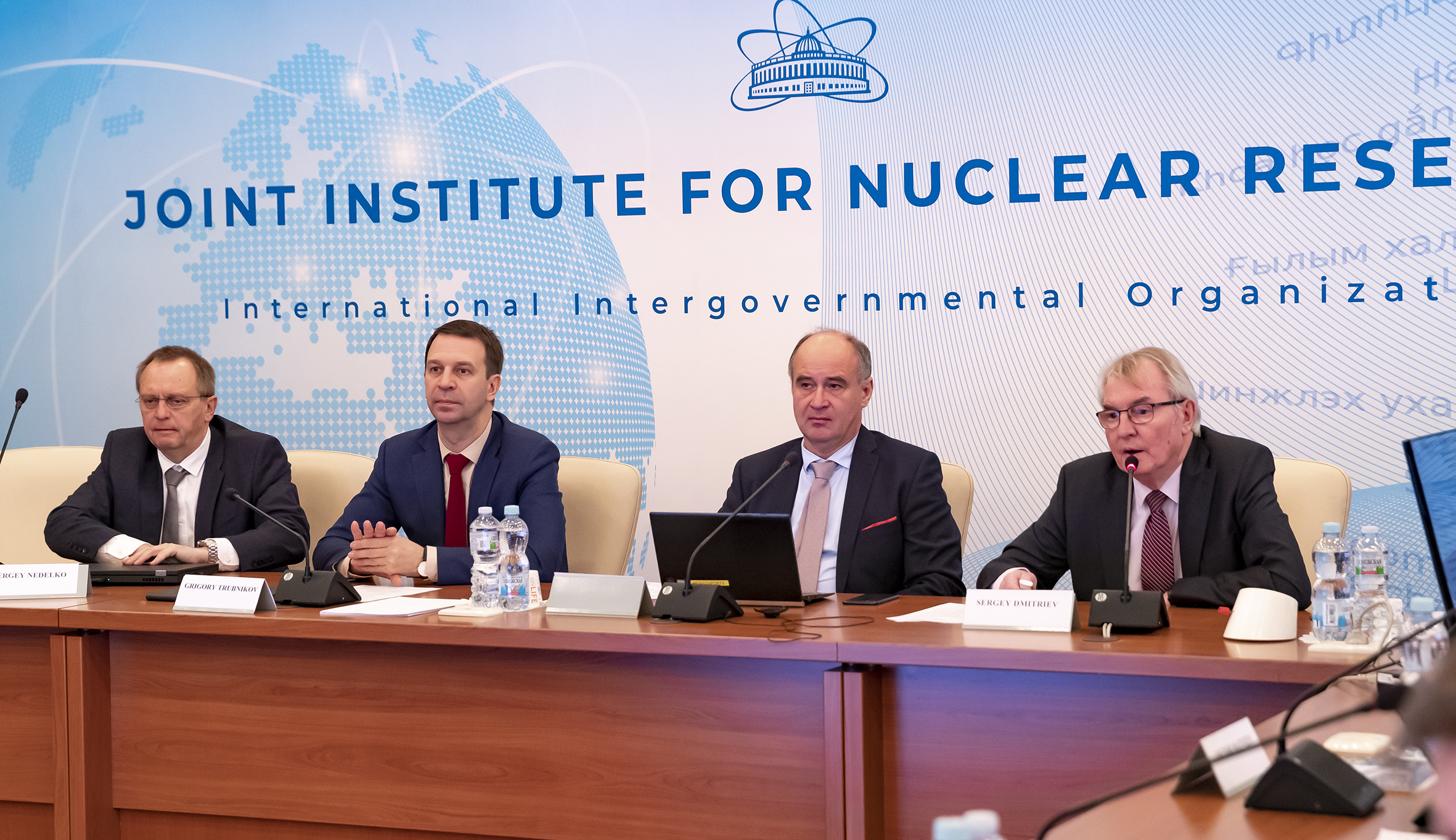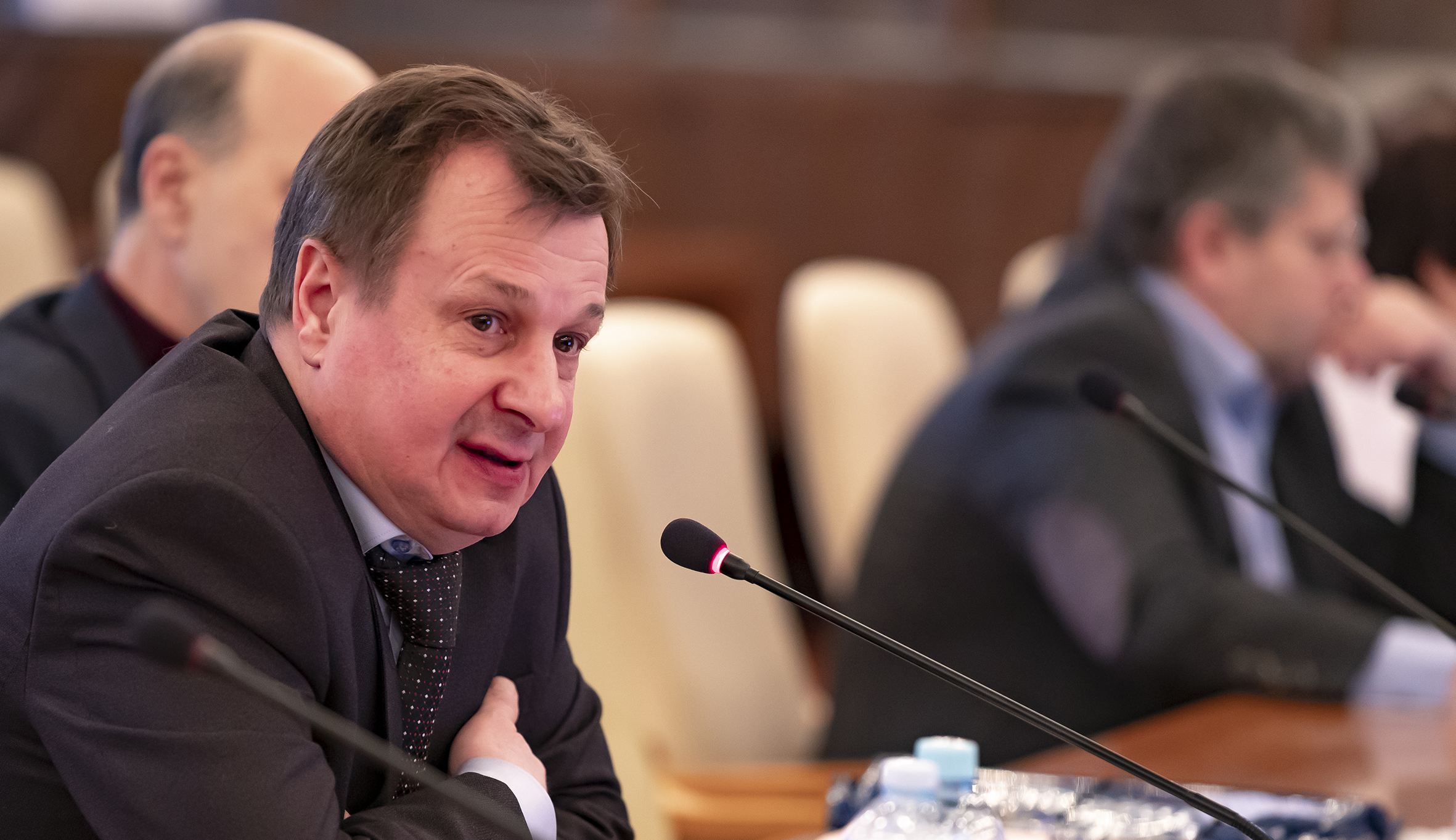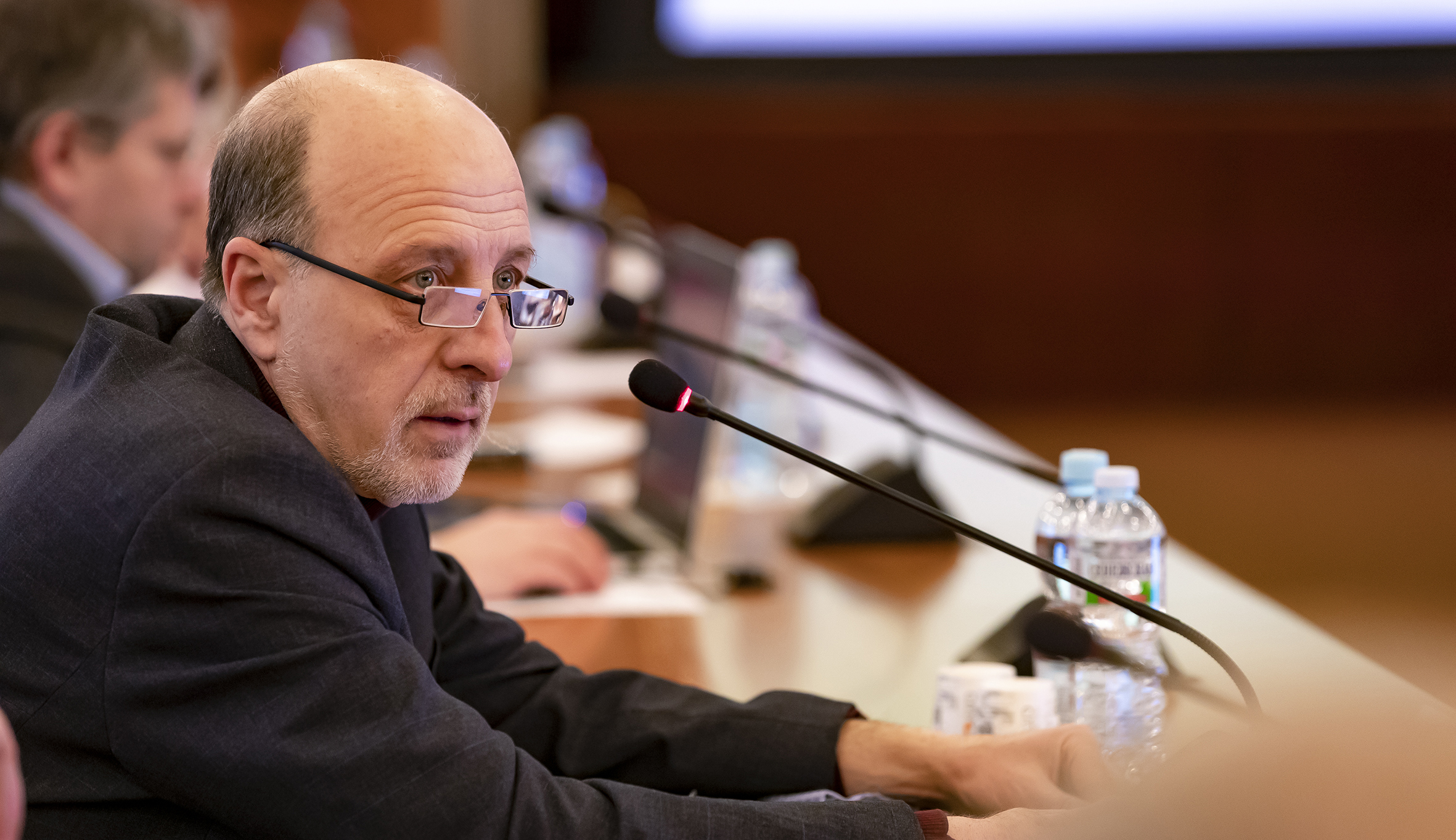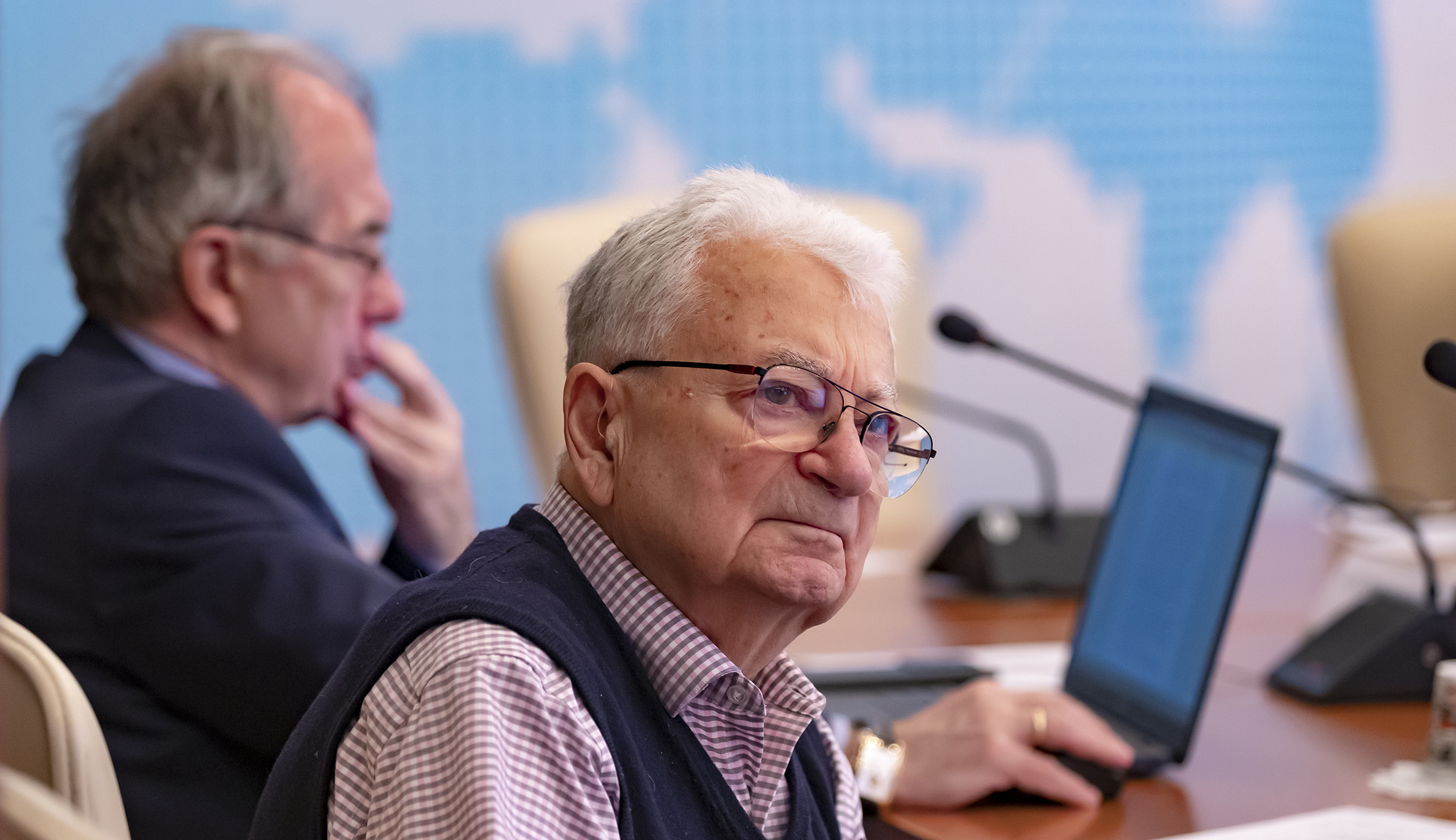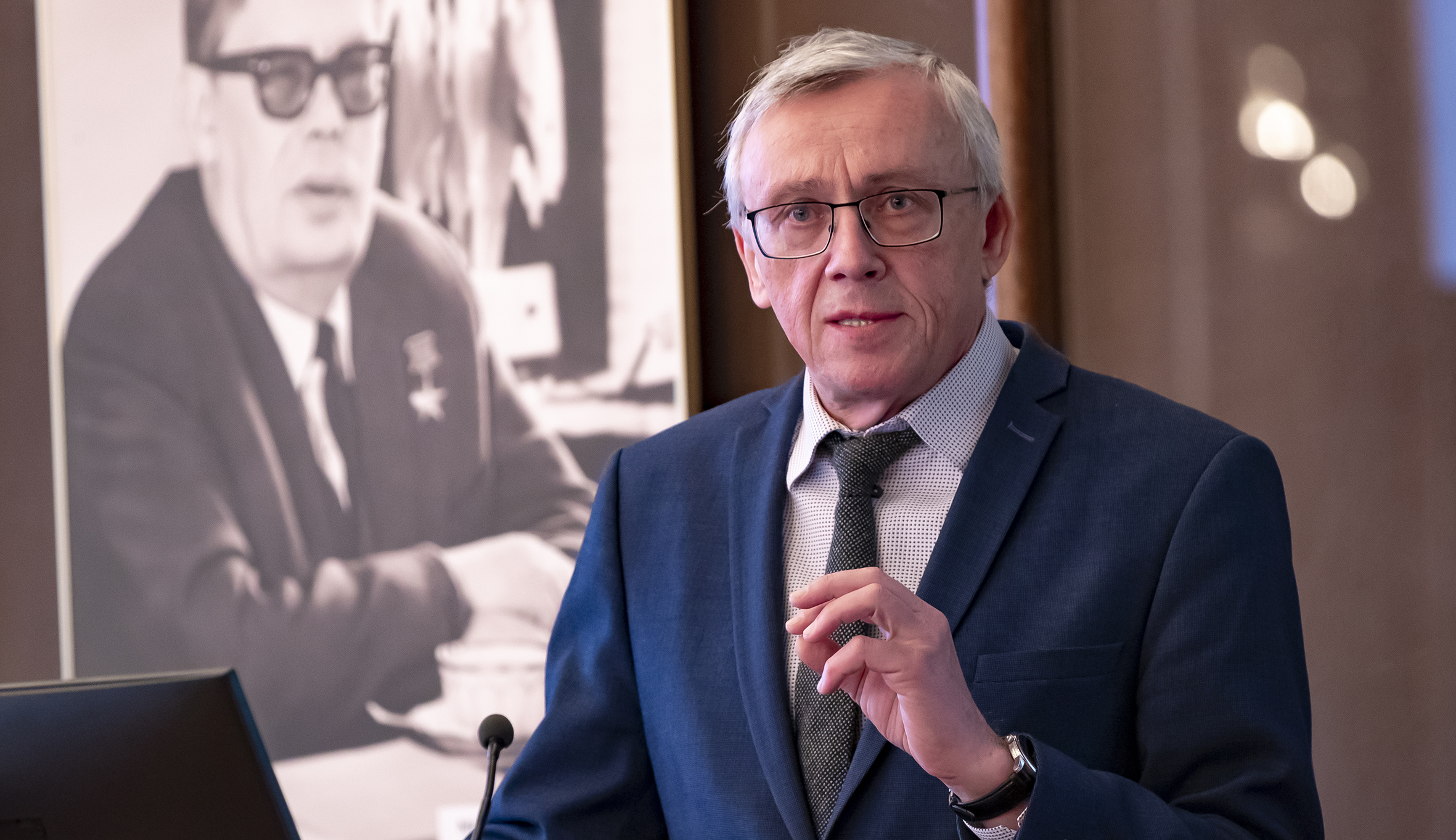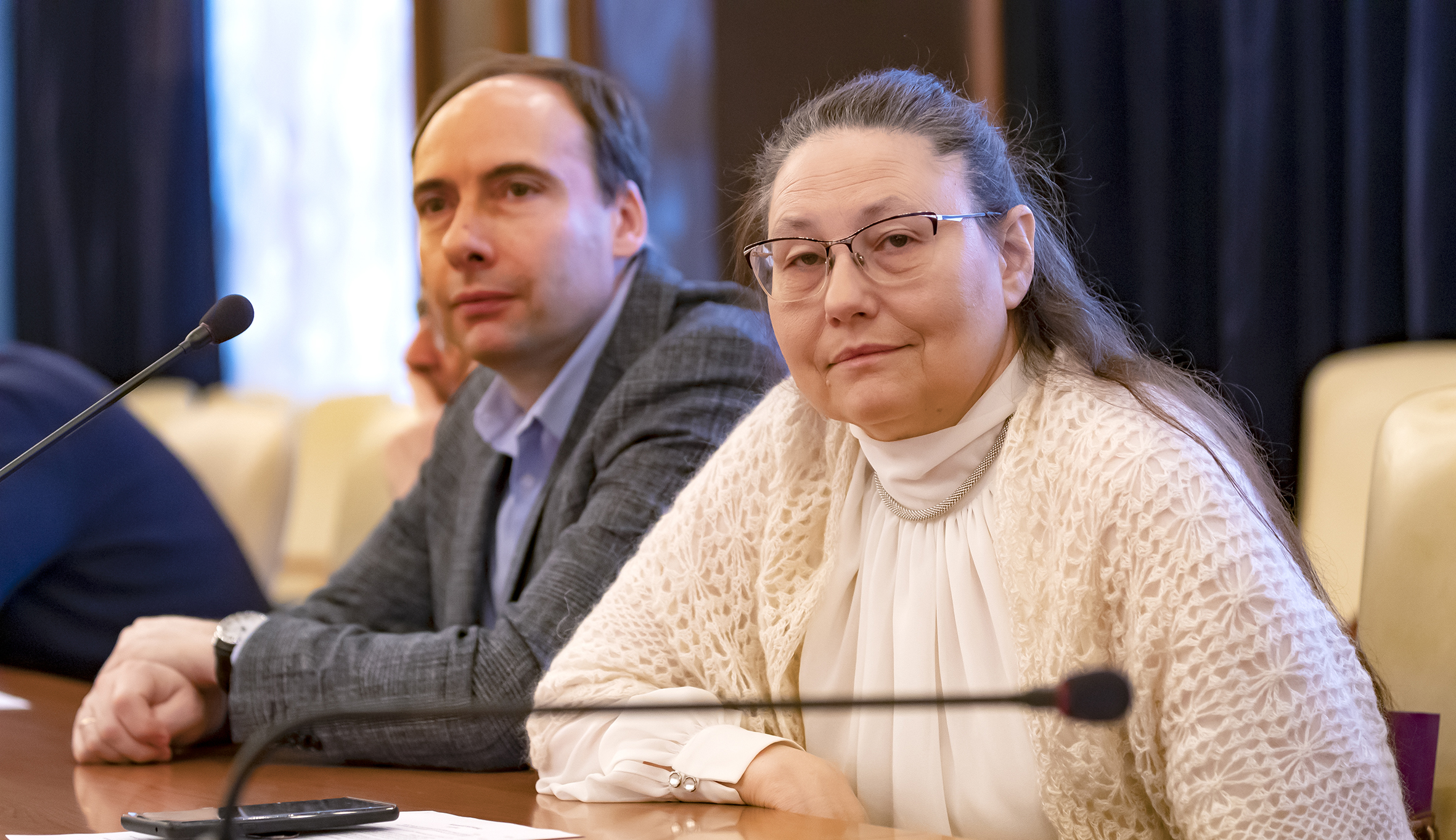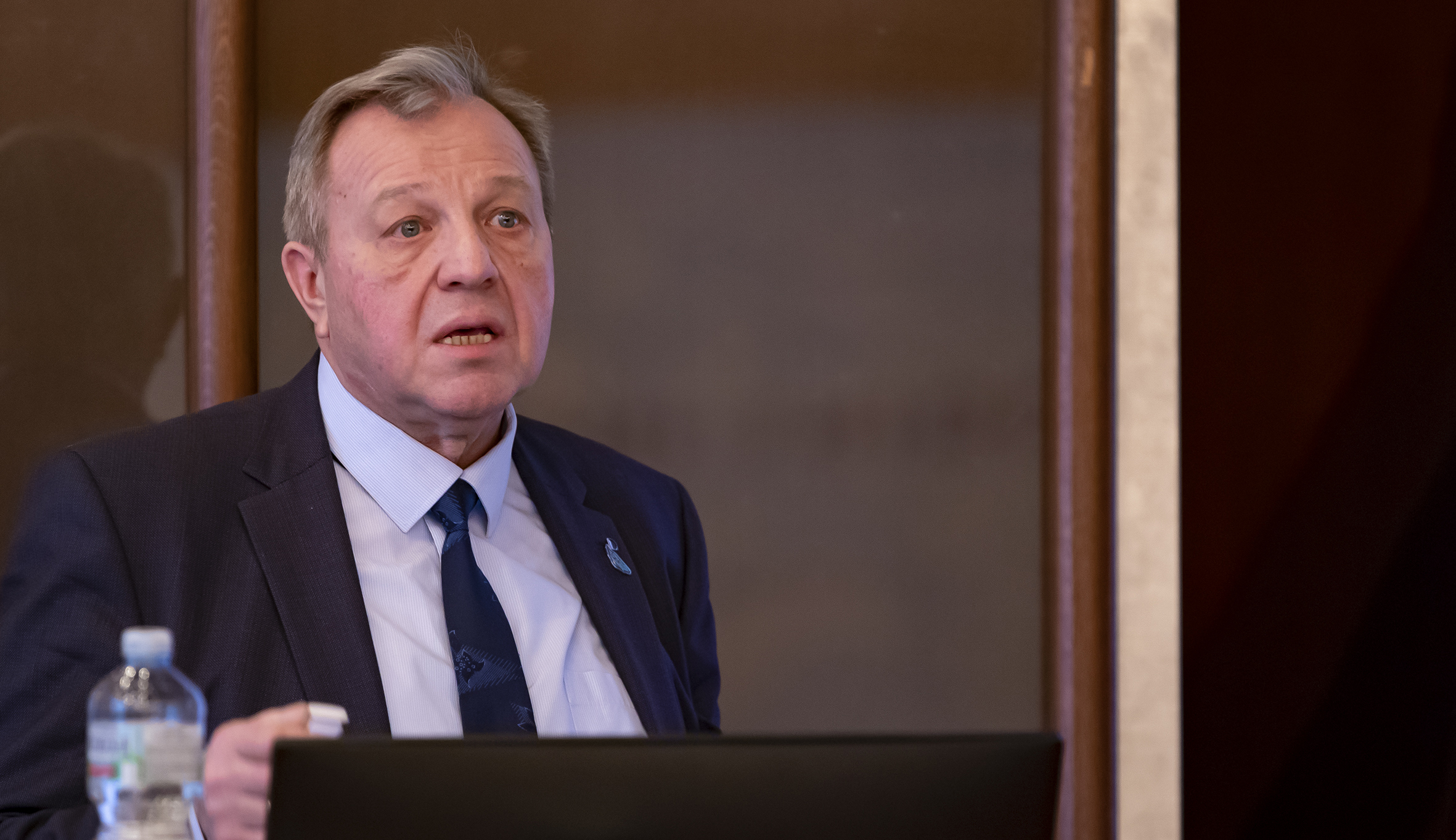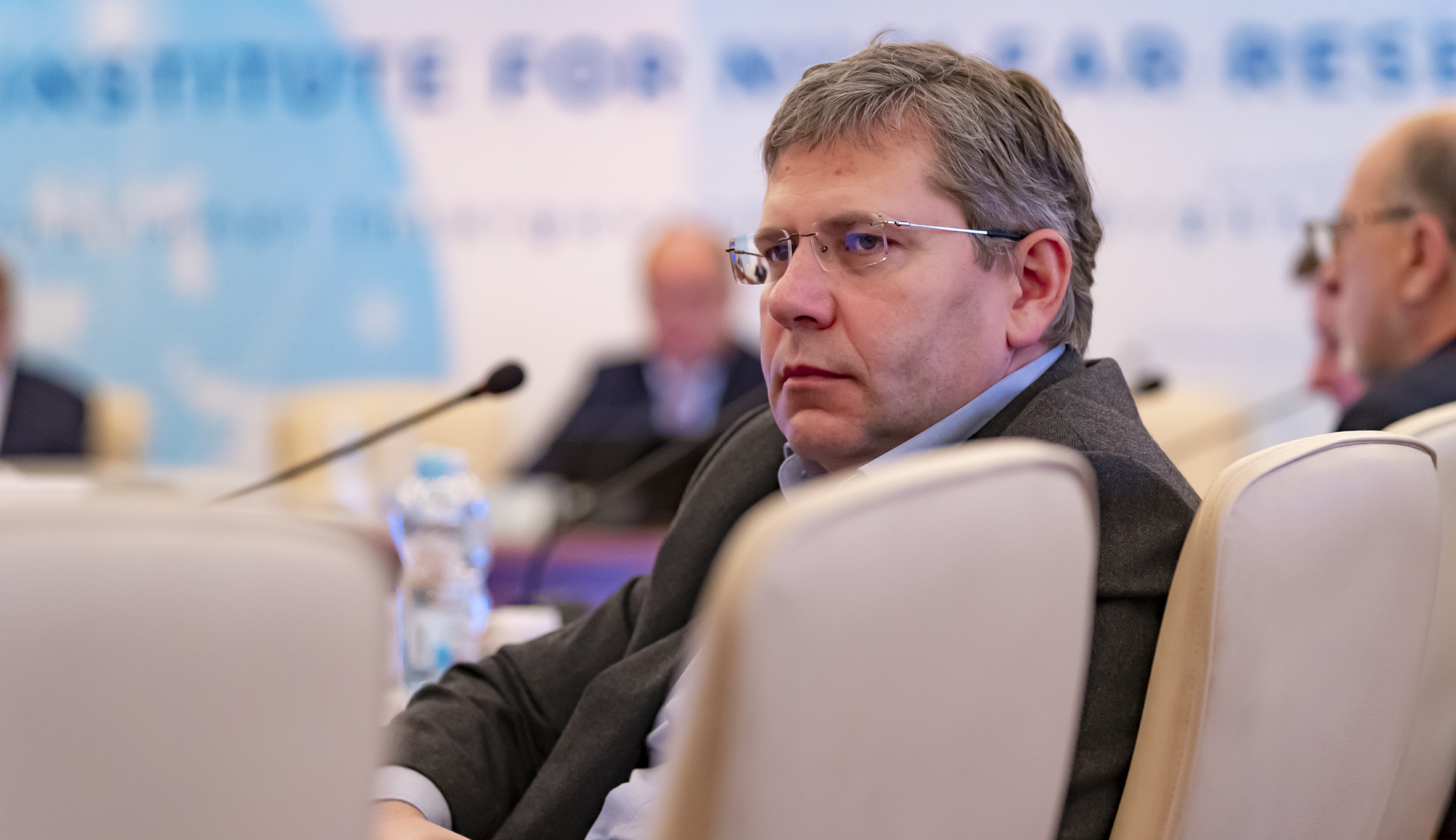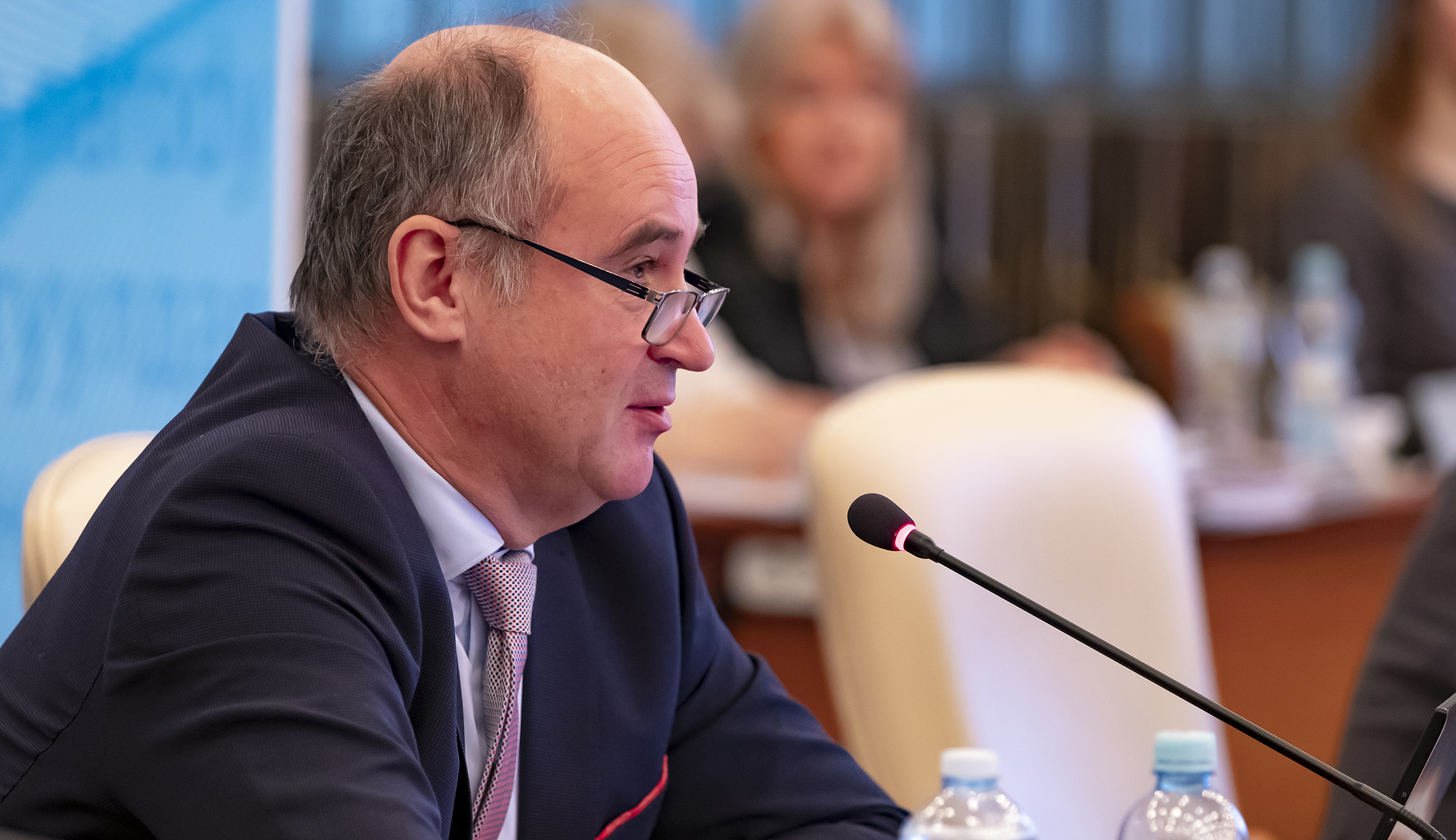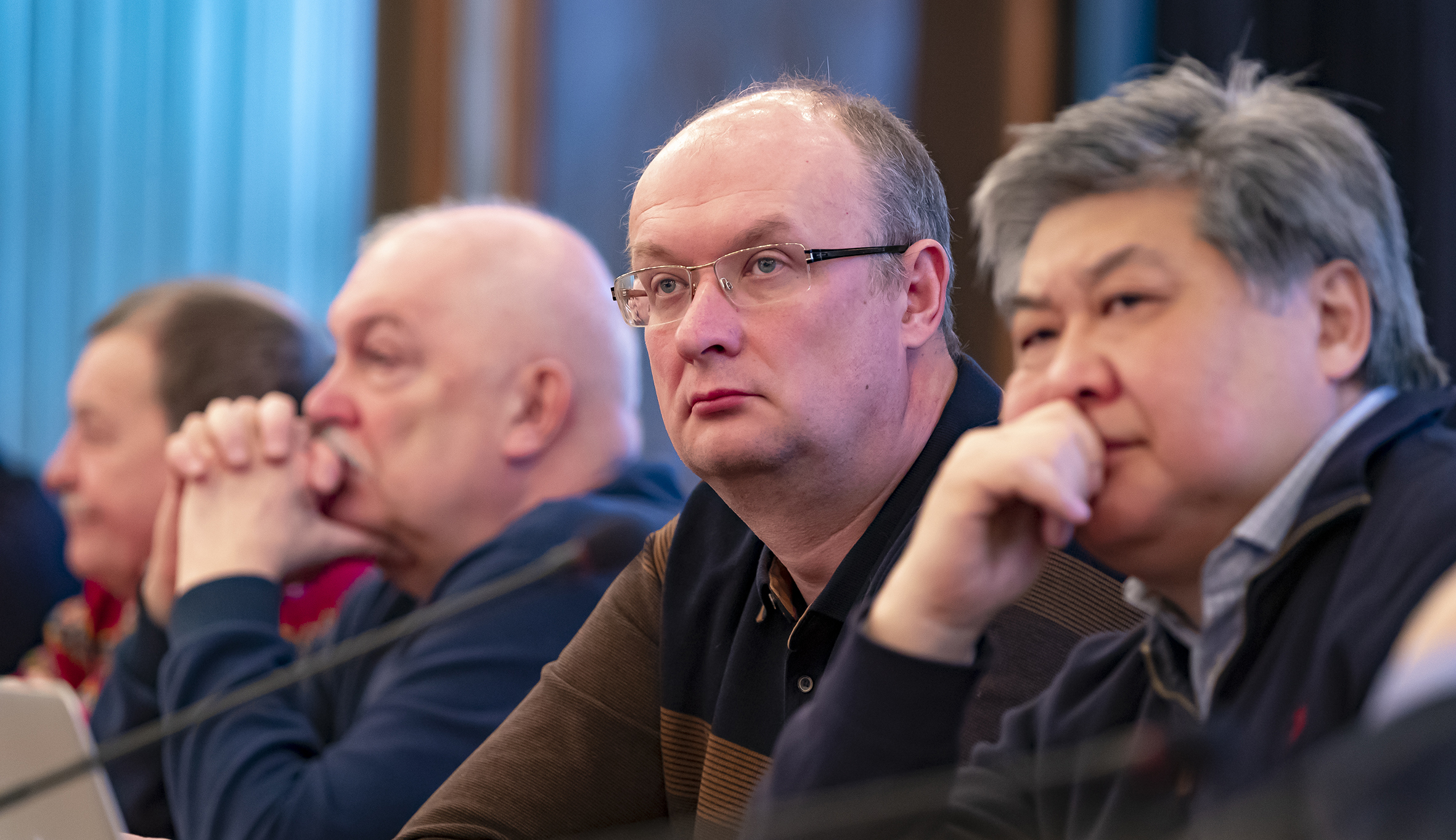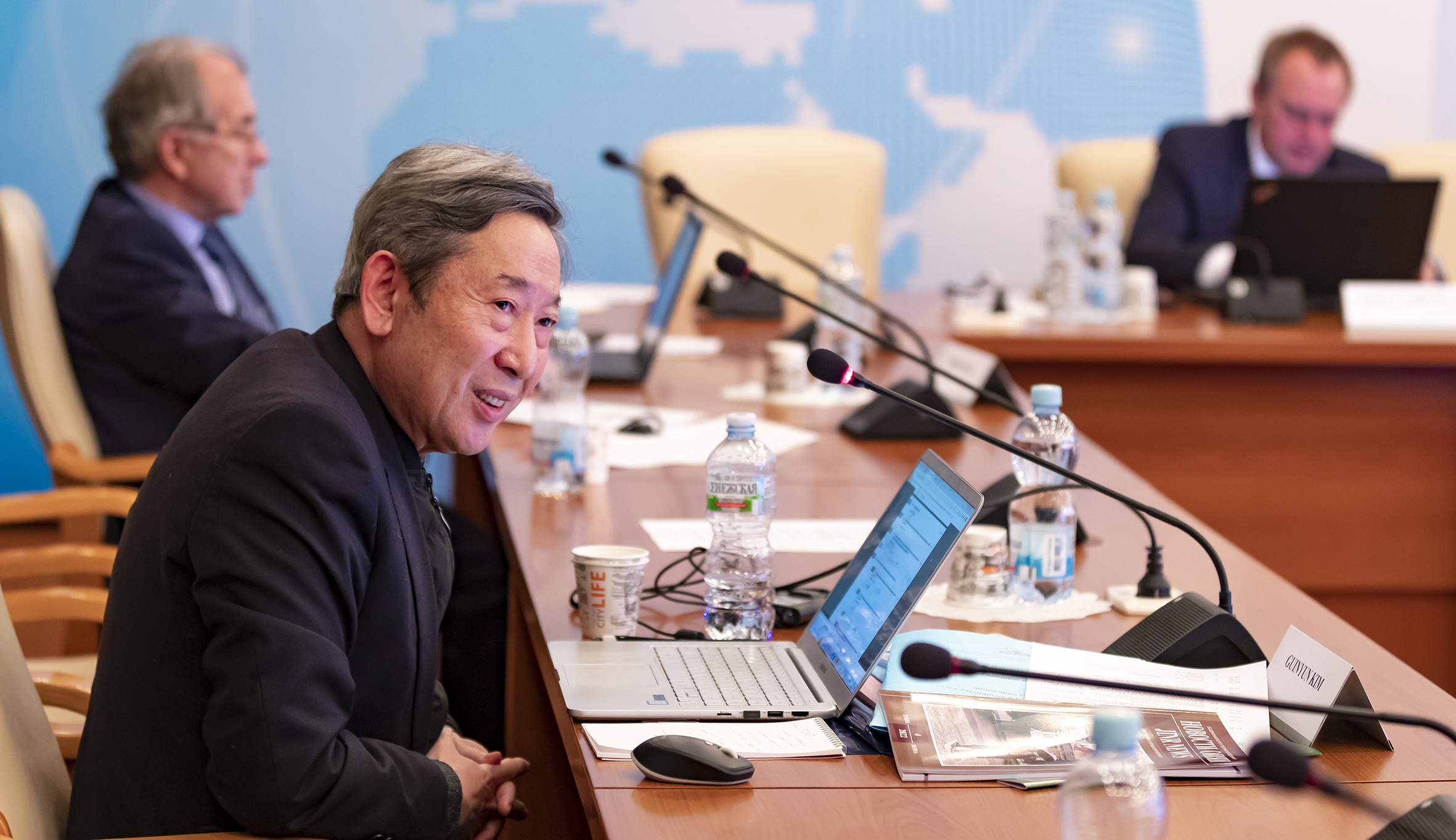Nuclear physics in new Seven-Year Plan
News, 26 January 2023
Today, the regular 56th meeting of the Programme Advisory Committee for Nuclear Physics of JINR has taken place. Participants of the event discussed plans of the Institute in the field of nuclear research covered in the new JINR Seven-Year Plan 2024 – 2030. The Committee gathered in a renewed membership chaired by the new Chairman. A researcher of the International Institute Laue-Langevin (ILL) in Grenoble Valery Nesvizhevsky has taken this position.
JINR Director Grigory Trubnikov opened the programme of the meeting with an overview report on the activities of the Institute. In his speech, the JINR Director highlighted the role of international cooperation in science. “Fundamental research at the Institute shows that science really brings nations together. The renewed membership of the Committee has as always united top-level specialists from all over the world, including representatives from Asia, Latin America, Africa, Europe, and many partner countries of the Institute,” he said.
The agenda of the current PAC meeting was focused on the Institute’s research plans in nuclear physics for the next seven-year period 2024 – 2030. JINR Director Grigory Trubnikov informed the audience about the main ideas covered in the structure and content of the JINR Seven-Year Plan. “Our goal is to offer a reliable, open, world-wide demanded research programme at the JINR facilities able to strengthen the international recognition that the Institute already has,” Grigory Trubnikov stressed.
Director of the Laboratory of Nuclear Reactions Sergey Sidorchuk reported on the current research and the state of the art of the FLNR JINR scientific infrastructure, as well as plans of the Laboratory for 2024 – 2030. One of the main directions of the FLNR scientific programme will be experiments on the synthesis and the study of the properties of new superheavy elements at the Superheavy Element Factory (SHE Factory). Obtaining materials for these experiments will be a specific task of the Laboratory, since the reactions to synthesise new elements will imply the use of such exotic isotopes as chromium-54 and titanium-50. Specialists also need rare materials such as berkelium and californium for the target. JINR’s cooperation with institutes and enterprises of the Rosatom State Corporation plays a key role in this issue.
Scientists will continue studying properties, spectroscopy of heavy and superheavy elements, mechanisms of nuclear reactions. Specialists of the Laboratory will study exotic modes of decay of light nuclei, mechanisms of light exotic nucleus production. To implement such a rich scientific programme, the Laboratory of Nuclear Reactions is going to create new facilities and modernise the existing ones. The upgraded U400M Accelerator will start operating this year. It is expected that during the new seven-year period, specialists will reconstruct the U400R Accelerator. FLNR JINR is also going to create new separators including STAR and SKIF. A new building of the U400R Complex will be constructed for them. A new ECRIS Superconducting Ion Source operating at a frequency of 28 GHz will appear at the SHE Factory. The Laboratory is also looking for the possibility of creating a class I radiochemical laboratory.
In his speech, FLNP JINR Director Valery Shvetsov reported on the tasks of the Laboratory in the field of neutron nuclear physics for the new seven-year period. FLNP specialists are going to increase the intensity of the IREN Facility and its operating time up to 3,000 hours per year. The new Seven-Year Plan also covers the modernisation of EG-5, the development of the TANGRA project. In the field of ultracold neutron research, the main task of the Laboratory team will be to creat its source at the IBR-2 Reactor. An important direction in 2024 – 2030 will be the creation of a new neutron source NEPTUN.
Head of the DLNP Department Evgeny Yakushev delivered a report “Research in non-accelerator neutrino physics and astrophysics and proposals for the Seven-Year Plan for the Development of JINR for 2024 – 2030”. BLTP Deputy Director for Science Nikolay Antonenko spoke about the BLTP main tasks in the study of the theory of nuclear systems, status and proposals for the Seven-Year Plan. He also made a proposal for the extension of the theme “Theory of nuclear systems”. MLIT Director Vladimir Korenkov informed the audience about the status and prospects of the Laboratory’s scientific programme.
JINR Vice-Director Sergey Dmitriev reported on the Resolution of the 132nd session of the JINR Scientific Council (September 2022) and the decisions of the JINR Committee of Plenipotentiaries (November 2022).
The PAC members met with the JINR Directorate. Adoption of PAC recommendations and proposals for the agenda of the next PAC meeting concluded the event.
